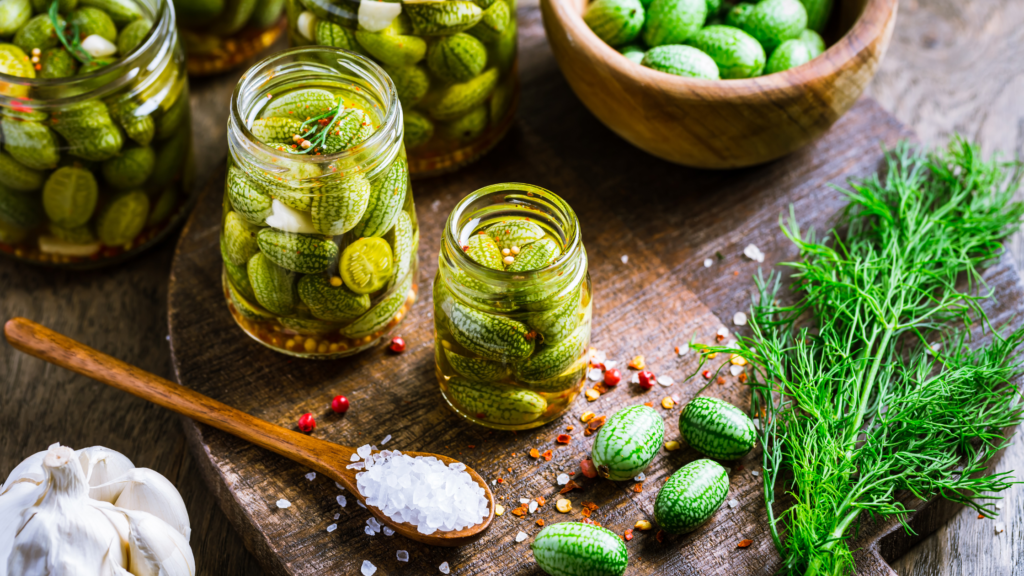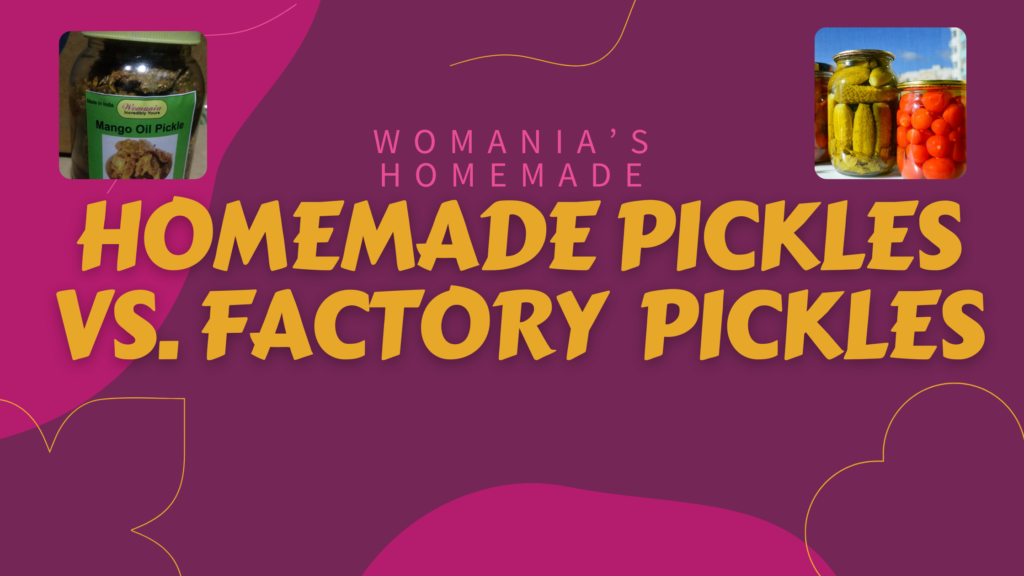Homemade Pickles vs. Factory Pickles: Which is Best?
Pickles are a beloved condiment and snack in many cultures around the world. They come in a variety of flavors, types, and preparations, with the two main categories being homemade pickles and factory-made pickles. Both have their unique advantages and drawbacks, making it essential to explore which one might be the best choice for different individuals and situations.
The Art of Homemade Pickles
Homemade pickles are a time-honored tradition in many households. The process of making pickles at home involves selecting fresh vegetables, preparing a brine or vinegar solution, adding spices and herbs, and allowing the mixture to ferment or marinate over time. This method provides several distinct benefits:
- Control Over Ingredients: One of the most significant advantages of homemade pickles is the ability to control the quality and quantity of the ingredients used. Home picklers can choose organic vegetables, avoid preservatives and artificial additives, and adjust the amount of salt and sugar to their liking. This control is particularly beneficial for individuals with dietary restrictions or those seeking a healthier option.
- Customization: Homemade pickles offer endless possibilities for customization. Whether you prefer a classic dill pickle, a spicy jalapeño, or a sweet bread-and-butter pickle, you can tailor the recipe to suit your taste. The flexibility to experiment with different spices and flavors makes homemade pickles a culinary adventure.
- Freshness and Flavor: The freshness of homemade pickles is often superior to factory-made ones. Because they are typically consumed relatively soon after being made, homemade pickles retain a crispness and vibrant flavor that can be lost in mass-produced versions. The personal touch and care put into each batch often result in a more satisfying product.
- Cultural and Family Traditions: For many, making pickles at home is more than just a culinary task; it’s a cherished family tradition. Recipes are often passed down through generations, creating a sense of continuity and connection with the past. This aspect of homemade pickling adds a sentimental value that factory-made pickles cannot match.
The Convenience of Factory Pickles

Factory-made pickles, produced on a large scale, are widely available in grocery stores and come with their own set of advantages:
- Convenience and Consistency: The primary advantage of factory pickles is convenience. They are ready to eat right out of the jar, with no preparation required. Additionally, factory pickles offer consistency in flavor and texture, which can be reassuring for consumers who prefer a predictable product.
- Long Shelf Life: Due to the use of preservatives and pasteurization, factory pickles often have a much longer shelf life than homemade varieties. This makes them a practical choice for those who may not have the time or inclination to make pickles at home or for stocking up in case of emergencies.
- Wide Variety and Availability: Factory pickles are available in a vast array of flavors, types, and brands, making it easy for consumers to find something that suits their preferences. From traditional dill pickles to exotic flavors like curry or wasabi, the commercial market offers an extensive selection.
- Economies of Scale: Mass production allows factory pickles to be sold at a lower price point compared to the cost of making pickles at home. For budget-conscious shoppers, factory pickles provide an affordable way to enjoy this popular food item.
Comparing the Two: Factors to Consider
When deciding between homemade and factory pickles, several factors come into play, including taste preferences, health considerations, time, and budget.
- Taste and Quality: For those who prioritize taste and quality, homemade pickles often come out on top. The ability to use fresh, high-quality ingredients and customize the flavor profile usually results in a superior product. However, some factory brands also offer high-quality pickles that can rival homemade versions, especially artisanal or gourmet brands.
- Health Considerations: Homemade pickles are generally healthier, as they can be made without preservatives, artificial colors, or excessive amounts of sodium and sugar. This is particularly important for individuals with specific health concerns or dietary restrictions. On the other hand, factory pickles often contain preservatives and additives to extend shelf life and maintain consistency.
- Time and Effort: Making pickles at home requires a certain amount of time, effort, and knowledge. For busy individuals or those who prefer convenience, factory pickles are the obvious choice. They eliminate the need for preparation and waiting time associated with the pickling process.
- Cost: While factory pickles are generally more affordable due to economies of scale, the cost of making pickles at home can vary depending on the ingredients used. For those who grow their own vegetables or buy in bulk, homemade pickles can be cost-effective. However, the initial investment in jars, spices, and other materials might be higher.
- Environmental Impact: Homemade pickles can be more environmentally friendly, especially if local and organic ingredients are used. By reducing the need for packaging and transportation, homemade pickles can contribute to a lower carbon footprint. Factory pickles, however, often come in plastic packaging and require transportation from production facilities to stores, increasing their environmental impact.
Conclusion: Which is Best?
The question of whether homemade or factory pickles are best ultimately depends on individual preferences and circumstances. For those who value freshness, quality, and the joy of crafting their own food, homemade pickles are likely the better choice. They offer superior control over ingredients, customization, and often a more satisfying flavor and texture.
On the other hand, for individuals who prioritize convenience, consistency, and affordability, factory pickles are an excellent option. They provide a wide variety of flavors, a long shelf life, and are readily available in stores.
In the end, both homemade and factory pickles have their place in the culinary world. By understanding the benefits and drawbacks of each, consumers can make an informed decision that best suits their needs and preferences. Whether you choose to embark on the rewarding journey of homemade pickling or opt for the convenience of store-bought varieties, the world of pickles offers something delicious for everyone.


Greetings! Very hdlpful advice in this paricular article!
It’s the little changges which will make the most significant changes.
Thanks a lot for sharing! https://Odessaforum.Biz.ua/
thanks